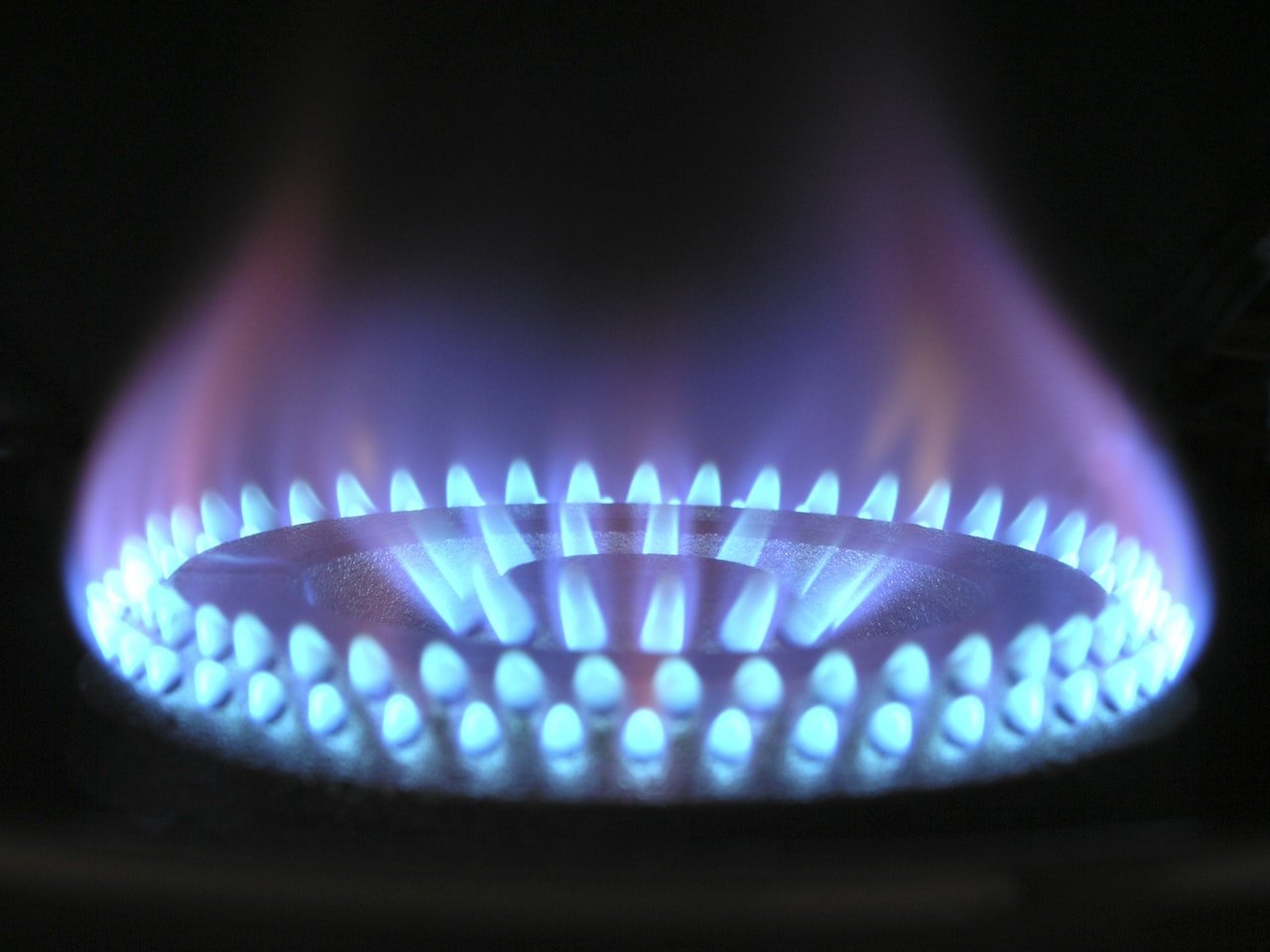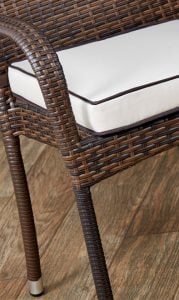How You Can Do Your Bit At Home to Help Save the Planet
There can be no denying that global warming is impacting our planet. There are countless news stories about how climate change is affecting the world. Although many people feel that they as individuals are unable to make a difference, this is in fact far from the truth. If every individual and every business makes a small effort to reduce their impact on the environment, together we can make a real difference. The changes that people make don’t have to be huge either. There are many simple tricks that you can carry out at home that will help to save the planet. Not only will they contribute towards reducing factors such as carbon emissions and greenhouse gasses, many of the changes can also help save you money.
In this article we’ll outline of our top tips that you can implement at home to help save the planet. We’ll focus on some of the key areas that aren’t usually very energy efficient, including heating your home, cooking, washing, and using appliances. Some of these steps may surprise you, and incorporating even a few of them into your daily life can help the planet, and your bank balance.
Eco-friendly Tips: Keeping Warm at Home
The average UK household spends between £795 and £1639 per year on energy. Many people aren’t aware just how much energy, and therefore money, they waste when running their home. One of the main areas where home owners lose out is with heating. Below, we’ve listed some of our top tips and tricks for reducing your heating costs:
Heating
- Reduce the thermostat by 1°C. We can all agree that a 1°C difference in temperature is barely noticeable. However, lowering your thermostat by a fraction can end up saving you as much as £60 per year. You’ll expend less energy and run a more efficient house.
- Install a smart meter. Most homes in the UK have a central heating system, whether gas, LPG or oil fired. These systems are controlled by a thermostat. Adding a smart meter to your setup can help you monitor and optimise your heating and reduce your carbon dioxide emissions.
- Get an energy audit. Speaking of optimising your energy output, The Green Deal incentive helps you identify ways you can make your home more energy efficient. You may even be eligible to receive help with your energy bills or making your home more eco-friendly.
- Wear more layers in the home. Ok, this one may seem a little Scrooge-esque, but it certainly works. Layering up at home can help you keep the chill at bay and means you don’t need to crank the heating so high. Whilst we’re on the subject, it’s often more energy efficient to run the heating at a lower, constant temperature rather than cranking it high when you’re cold.
- Try to avoid electric heating. The least efficient way of heating your house is by using electric heating. It uses more energy than other alternatives such as gas, LPG, or oil. If you have the choice, always go for the greener options.

Heating Appliances
- Check your radiators. Having inefficient radiators, whether inside or outside, can end up costing you and the environment. Bleeding your radiators is essential maintenance, but there are simpler steps, that you can take too. For example, making sure that radiators aren’t covered or blocked by furniture means the warm air can better penetrate a room.
- Check your boiler is working properly. Most of us have experienced boiler pains at some point or another. There’s little that’s more frustrating than having your boiler pack up, particularly in the middle of winter. To avoid this, regularly check that your boiler is working as expected. This also means that you can keep on top of how efficiently it’s running.
- Install a heat pump and take advantage of the RHI. Heat pumps are magnificent inventions. They can draw heat from the outside environment to power your heating and hot water indoors. Not only do they help reduce carbon emissions, you may also be eligible to receive money from the renewable heat incentive (RHI) for installing one.
Insulation and Windows
- Install insulation. One of the most effective ways of heating your home is to thoroughly insulate it. This prevents heat escaping, meaning you don’t have to run your central heating as high or for as long. There are three main types you should consider:
- Loft insulation
- Cavity wall insulation
- Solid wall insulation
Each of these will go a long way to helping keep your house warm and energy efficient, and you’ll be surprised by the difference they make.
- Draught proof around your front door. A draughty front door is annoying in itself, but it can also sap the warm air right out of your house. Some simple draft-proofing or even a thick curtain can make the world of difference.
- Shut windows during winter. Again, this may seem like an obvious step to take when it’s freezing cold outside, but sometimes the temptation is to run the heating warmer whilst letting fresh air in. Doing both is incredibly inefficient, so be sure to turn off your heating if you do decide to air the house out.
- Install double or triple glazing. Glass isn’t a particularly effective method of keeping out the cold air. With double or triple glazing, a layer of air is encased between two or three panes of glass. This air creates a barrier between the outside and inside environments, making all the difference when it comes to keeping your house warm. This is particularly relevant to your conservatory.
- Use magnetic secondary glazing. Installing double glazing isn’t necessarily cheap. A more affordable alternative is magnetic secondary glazing, which introduces another layer of glass to your existing windows.

Hot Water
- Have showers instead of baths. Baths use far more water than showers. Although they’re certainly relaxing, they should be had as an occasional luxury rather than as part of your daily routine.
- Turn down the power shower pressure. As glorious as a hot, powerful shower can be, it’s not very energy efficient. By reducing the pressure of your shower slightly, you can end up saving a lot of water and money, and help save the planet.
- Spend less time in the shower. Shaving a few minutes off your daily shower can soon mount up. As we’ve mentioned, it takes a lot of energy to heat water. Reducing your shower time will help to reduce the overall environmental impact of your household.
Eco-friendly Tips: Saving Energy in the Kitchen
Another key area of the house that can be wasteful in terms of both money and energy is the kitchen. Many of us take the appliances and power for granted, but making just a small effort can contribute to reducing emissions and protecting the environment. Here are our top tips.
Cooking
- Cook your meals in bulk. This is a tip that helps the environment and gives you more time during the week. Doing one large session of cooking a week means you’re not constantly turning the hob and oven on and off.
- Use your leftovers. Most of us are guilty of wasting food to some extent. However, by planning your meals and making multiple meals from the same ingredients will prevent food waste. This goes a long way in helping the environment, and means you’ll spend less on your weekly shop.
- Shop locally. Buying produce from your local farm has many benefits. For one, it will likely be organic, which in itself reduces environmental impact. It will also mean that fewer emissions are used in transporting the food from the other side of the country.
- Use eco-friendly cookware. Those of us who lived through the 80s and 90s will know the prevalence of Teflon. Although it was once the saviour of home cooking, it’s actually not all that energy efficient. Ceramic-based cookware conducts heat better, meaning you use less energy whilst cooking.
- Use a microwave. Using a microwave to heat smaller dishes and leftovers can reduce cooking energy by as much as 80%. There are plenty of healthy ways to prepare meals using this one appliance.
- Harness your excess heat. If it’s a little chilly in your kitchen after you finish cooking, open your oven door (once you’ve turned it off) and let the residual heat warm the room rather than turning the heating up.

Washing
- Avoid rinsing. Dishwashers are magnificent inventions that can save time and water. If you’re using one, it’s unlikely that your dishes need pre-rinsing before you put them in. Simply scraping them into the bin beforehand will save that extra water.
- Run a full load. Your dishwasher is most effective when it’s full. Running a half-empty cycle uses as much water but cleans half as many dishes. Always be sure to fill it up before running it.
- Replacing appliances. When it’s time to replace your old dishwasher, look for a more environmentally friendly model. Technology has come a long way over the last few years, meaning many household appliances, including dishwashers, are more energy efficient than ever before.
Other
- Keep your fridge and freezer full. An empty fridge or freezer requires more energy to keep cool. Having a well-stocked refrigerator uses less energy to keep cool.
- Unplug your second fridge. It’s not uncommon for people to move their old fridge to the garage or utility room. The extra storage sometimes seems like an attractive prospect. However, unplugging your second refrigerator and properly recycling it prevent 2500 – 9000 kg of greenhouse gas emissions.
- Repair your leaky tap. Not only is the constant dripping annoying, a leaky tap can waste a huge amount of water over a long period of time. Solving the problem early will reduce your water bill and give you some peace and quiet.
Eco-friendly Tips: Keeping Clean
Keeping your clothes clean and dry can be an energy intensive process. However, thanks to improvements in technology and a better understanding of efficiency, it’s possible to be more eco-friendly with your laundry. Cleaning your home can also have an environmental impact, but steps can be taken to reduce this.
Laundry
- Lower the temperature of your washing machine. Washing your clothes at 20°C consumes around 70% less electricity than one at 60°C. Most clothes can even be washed using cold water, particularly when using cold water detergents.
- Get busy drying. Electric tumble dryers are not very efficient. Using a manual clothes dryer or washing line is free and environmentally friendly. Try and use them as much as possible, particularly during the warmer months.
- Clean your lint trap. If you do use a tumble dryer, be sure to clean the lint trap before every use. It maximises the efficiency of the appliance and uses less energy to dry your clothes.
- Fill your appliance. When you are using your washing machine and dryer, make sure that you run them full. Similar to dishwashers, the same amount of water and energy is used regardless of how full they are (depending on settings). To be as eco-friendly as possible, try and use them as sparingly as possible.

Cleaning
- Use a broom. Although vacuum cleaners are fairly essential for some surfaces, they do use electricity. Switching to a broom where possible can save this energy, all of which mounts up over the course of a year.
- Use lemons. Chemical cleaners can be environmentally damaging in a number of ways. Thankfully there are plenty of natural options that work just as well when it comes to cleaning your home. Lemons, baking soda, and white vinegar are all excellent replacements for store-bought cleaners.
- Ventilate your home. Opening the windows and letting in some fresh air can save the need for energy-intensive appliances such as humidifiers and air-conditioning units. It can also prevent the build-up of dust and help air out rooms.
Eco-friendly Tips: Energy Efficient Appliances
The main bulk of household electricity use goes on running the various appliances and gadgets that make our lives easier. Although it’s probably a bit extreme to ditch them entirely, there are some eco-friendly ways that you can reduce the environmental impact of your appliances.
Reduce
- Unplug. If you don’t use an appliance on a regular basis, be sure that you unplug it from its socket. Although most appliances don’t use much electricity when idling, it all mounts up over time.
- Only use when essential. We’ve already mentioned above about running dishwashers, washing machines, and driers on full loads, and using a broom rather than a vacuum where possible. However, many of us use appliances without thinking, even if we don’t particularly need to. Think about how your appliance usage impacts the planet and your electricity bill.
- Reduce water. Heating water is expensive and energy intensive. When it’s time for a cuppa, boil only the amount that you need. It can make a huge difference over the course of a year.

Repair
- Repair fridge door seals. We discussed refrigerators above, but one thing we didn’t mention was repairing the seals on them. It’s not a difficult task by any means, but it can make the appliance more efficient to run.
- Don’t throw it out. Take the time to repair your old appliance where possible. Rather than throwing them into landfill, you can most likely get some more usage out of it with a simple repair.
Replace
- LED the way. Replacing your incandescent lightbulbs with LED ones makes a big difference to your energy consumption. Not only are LED bulbs more efficient, they also last longer. This means they don’t require replacing as often as traditional bulbs.
- Buy A-rated appliances. When the time comes to replace your appliances, use the energy rating system to choose A-rated appliances. These are the most eco-friendly and can help you contribute towards saving the planet.
- Use motion detector lights. Rather than having you outdoor lights running all night, instead use motion detectors. This means that your bulbs won’t be running for as long, saving you electricity costs.
- Install a low flow shower head and use tap aerators. Showering is something we mentioned above, but in terms of appliances you should try to replace your existing setup with low-flow shower heads and tap aerators. These devices control the amount of water that flows through the tap without affecting the water pressure.

Recycle
- Recycle old appliances. Thankfully, domestic appliances are now required to be recycled rather than sent to landfill. However, many people simply hold on to their old appliances instead of recycling. Many retailers in the UK offer schemes for recycling your old appliances, and many of them for free.
Eco-friendly Tips: Other Top Tips
- Install solar panels. There can be little denying that renewable energy is the future. The technology is better and more affordable than ever before, and solar panels are a great way to reduce your carbon footprint. They work even on cloudy days and convert sunlight into energy that powers your household appliances and lighting. With the government’s Feed-in Tariff scheme, you can even get paid for the solar energy you produce.
- Install a rainwater harvesting system. The dreary, rainy days that turn up in just about every season can be put to some use by installing a rainwater harvesting system. These systems capture and store water as it falls, and allows you to put it to good use. It can save you money in the long run and is another step towards saving the planet.
- Start composting. Composting is a great way of dealing with your organic household waste. It’s good for your garden, and means that little food is truly wasted. It helps support diverse ecosystems in your garden and it saves you from having to buy compost from the store.
- Buy eco-friendly. There’s a huge range of options when it comes to eco-friendly products, from household cleaners to outdoor furniture. Making a conscious choice to support brands and companies who protect the environment is a massive step, both in reducing your own carbon footprint and in raising awareness to environmental issues.
Start Saving the Planet Today
What we’ve hopefully demonstrated in this article is that there are many steps, both large and small, that can help save the planet. Implementing a few of these (or all of them, if you’re able) means that you are reducing your environmental impact. What we’ve also tried to show is that many of these steps can contribute towards saving you money.
There are some key areas in the house where energy expenditure is at its peak. Heating water requires a lot of energy input, which is why we suggest washing at cooler temperatures, only boiling as much water as you need, and taking short showers rather than long baths. Heating your home is a lot more energy and cost efficient when the house is properly insulated. A difference of as little as 1°C can make big contribution in terms of annual savings, whilst double glazing and draft excluders can help to keep your house warm. When in the kitchen, using the eco-friendly equipment, conserving water, and using leftovers can also go a long way to reducing waste.
Ultimately, we all have the power to improve our lifestyle and contribute towards preserving the precious environment that surrounds us. Collectively we’re capable of doing amazing things. All it takes is a small amount of effort.
Sign up for our emails below, so we can send you blogs on gardening tips, as well as updates on our sales, so you don’t miss out on those garden furniture bargains!









